SUMMARY
This is AI generated summarization, which may have errors. For context, always refer to the full article.
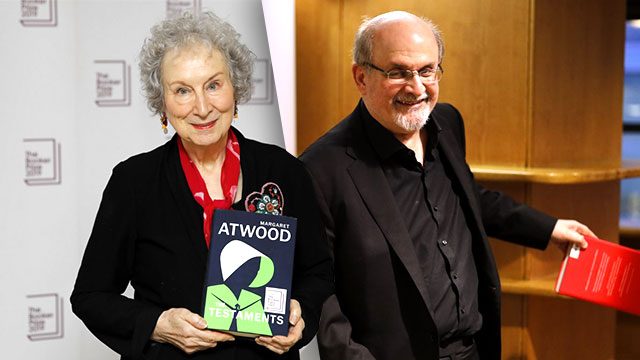
LONDON, United Kingdom — Britain’s storied Booker Prize will pit literary giants Margaret Atwood and Salman Rushdie against 4 emerging stars when it unveils the winner Monday, October 14 on its 50th anniversary award.
The title of best work of English-language fiction published in the United Kingdom and Ireland has launched careers and courted controversy since its creation in 1969.
Past laureates have ranged from celebrated writers such as Ian McEwan and Julian Barnes to Kazuo Ishiguro and Roddy Doyle.
Paul Beatty became the first American winner when the Booker bowed to pressure and began including authors from outside the British commonwealth, Ireland and Zimbabwe in 2013.
This year’s shortlist features 6 novelists — 4 of them women — born across 4 continents. It is also no longer called the Man Booker because of a sponsorship change.
The five-judge panel includes the writer-broadcaster Afua Hirsch and the British-Chinese novelist and filmmaker Xiaolu Guo.
1,000-page sentence
Canadian author Atwood’s 6th Booker nomination comes for The Testaments, a best-selling sequel to her 1985 dystopian classic The Handmaid’s Tale.
The Guardian said the book, which picks up the tale of three women 15 years on, presents “Atwood at her best”.
“It’s a question of things escaping from a book to the real world and the author has zero control,” the 79-year-old said upon its release last month.
Nominated for the 1986 prize, The Handmaid’s Tale became an award-winning TV series in 2017, and sales of the English-language edition have topped 8 million copies worldwide.
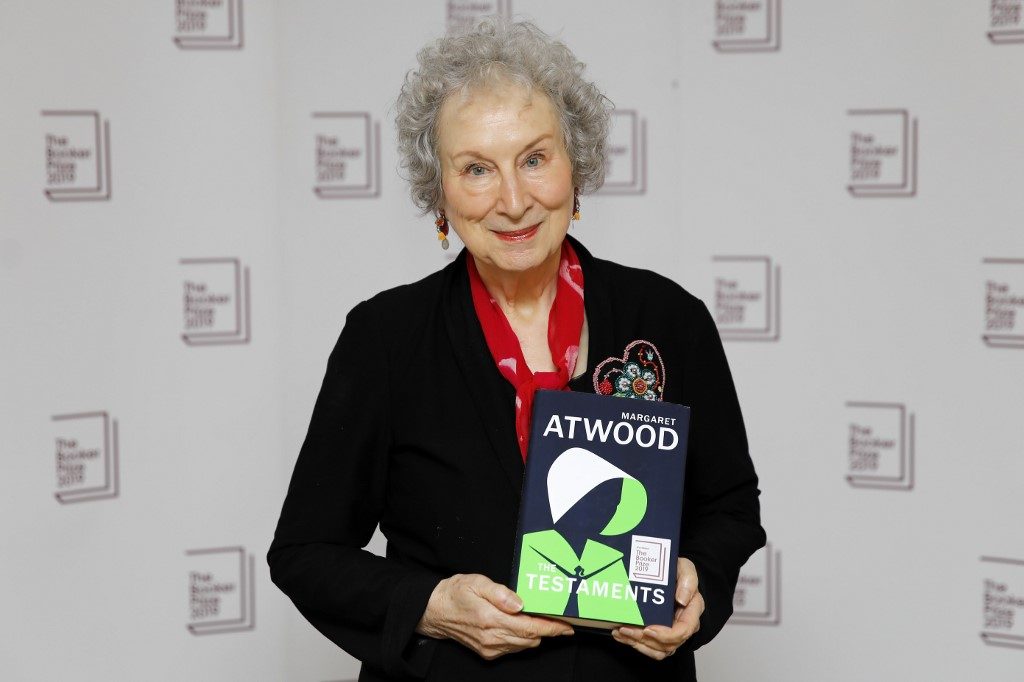
Rushdie, whose contender is called Quichotte, won the Booker Prize in 1981 for Midnight’s Children.
His tragicomedy this year, inspired by the classic Don Quixote, is the story of an ageing travelling salesman who falls in love with a TV star and sets off to drive across America on a quest to prove himself worthy of her hand.
Rushdie told HBO last month that he researched the book by “watching all this reality TV, which (the protagonist) loves. I began to understand that it could drive a person crazy”.
Nigerian author Chigozie Obioma made the shortlist for An Orchestra of Minorities — his second novel after The Fishermen, which was shortlisted in 2015.
Set in Nigeria — the author’s homeland — and Cyprus, it is a tragic love story with a strong sense of foreboding throughout.
Narrated by the main character’s chi spirit, it is richly poetic and deeply anchored in the mysticism of Nigeria’s Igbo people.
Lucy Ellmann challenges readers with Ducks, Newburyport — a story made up almost entirely of one sentence that absorbs readers and is occasionally funny.
It is a stream of thoughts from a woman making pies in her home in Ohio. The musings weave between her family, US politics, her dead parents and pets, pollution in rivers, and are interspersed with references to popular culture.
Anglo-Nigerian author Bernardine Evaristo is shortlisted for Girl, Woman, Other — about the lives of black British families with roots across the country, Africa and the Caribbean.
It tells the tale of 12 women that “brims with vitality,” according to the Financial Times.
Elif Shafak, the most widely read female author in Turkey, brings Istanbul’s underworld to life through the recollections of sex worker Tequila Leila in 10 Minutes 38 Seconds in This Strange World.
The entire work describes the last 10 minutes of conscious thought of a dying prostitute that The Times calls “surprisingly uplifting”. —Rappler.com
Add a comment
How does this make you feel?
![[Rappler’s Best] Patricia Evangelista](https://www.rappler.com/tachyon/2024/04/unnamed-9-1.jpg?resize=257%2C257&crop=486px%2C0px%2C1333px%2C1333px)
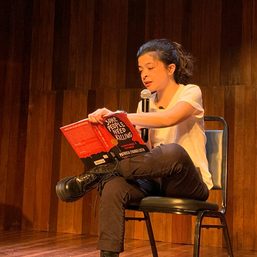
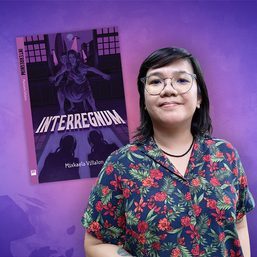

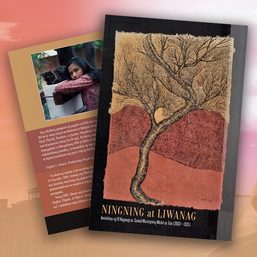
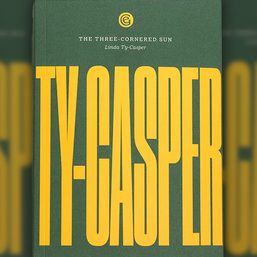
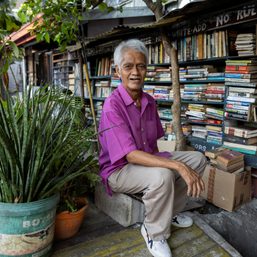

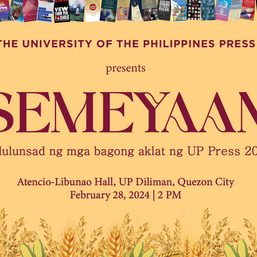

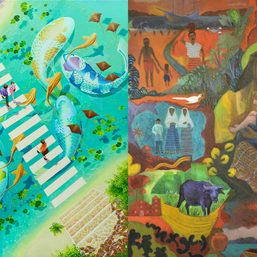



There are no comments yet. Add your comment to start the conversation.